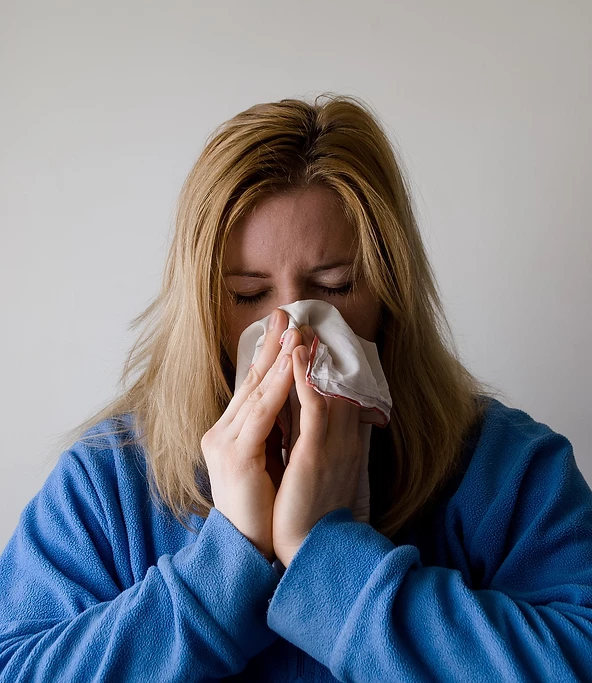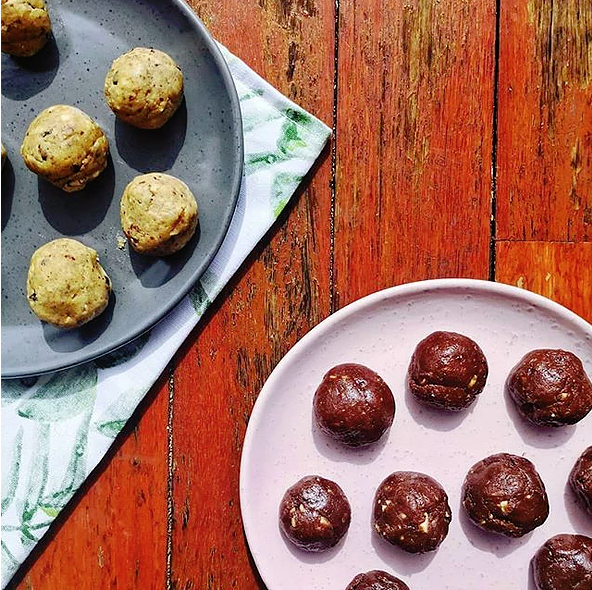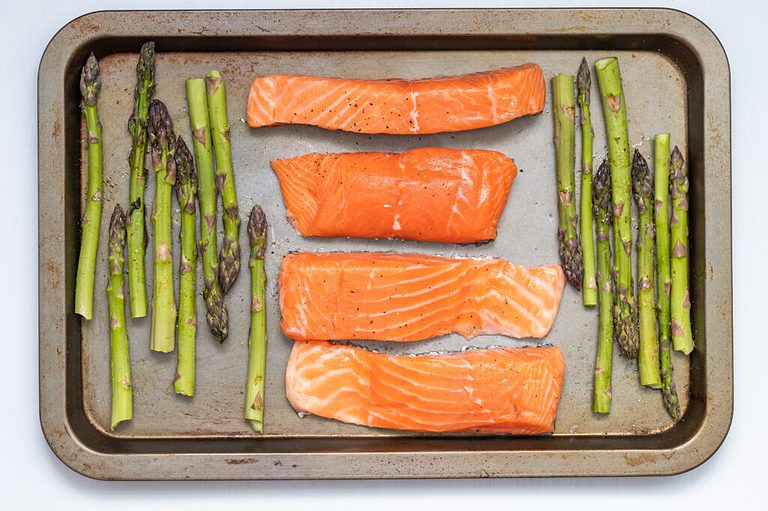As we emerge from the tail end of the winter sniffle season and making a B-line for the warmer months, there seem to be two groups of people, the ones that emerged relatively unscathed and those of us who fell (sometimes really hard!) to the cold or even the flu!
Besides hand washing, keeping up to date with your vaccines and quarantining yourself when you do fall sick, there is one more thing we can consider when it comes to keeping our immune health in tip-top shape NOW, so that when the next bout of germs hits us, hopefully, we can be fully armed for the onslaught!
Let’s talk about eating for optimal immune function.Did you know, the majority of your immune system lives inside your gut?
Your immune system is a complex system which protects your body from lots of different things, from foreign bodies entering (think dust in your eye) to pathogens (bacteria or viruses or parasites) wreaking havoc and making you fall ill. Our immune system is always working to protect us and keep us safe, and it is fighting off many simple things we come across everyday.
In fact, getting sick is not in actual fact your immune system “failing” you. Even when you do get the sniffles, it builds antibodies (a type of immune molecule) against that specific pathogen, so that it can remember it and protect you from getting sick with the same pathogen next time! Pretty nifty, huh?
Because of the complexity and how interconnected the immune system is with lots of our other body’s functions, it’s a very difficult thing to study if a certain dietary pattern or vitamin or mineral can provide a “boosting” effect on the immune system.
Your immune system is always working for you at its best capacity (with the exception of people who are immunosuppressed, like organ transplant patients, people receiving chemotherapy and even the elderly and the very young).
Energy
Whilst a negative energy balance may be the goal (i.e. expending more calories than being consumed) for weight management, when this is too dramatic or going on for too long (often combined with lots of exercise), this can compromise your immune health.
We know that people who don’t get enough calories are more susceptible to acquiring infections and getting sick, the mechanisms of action are quite complex, but various studies in different setting have shown that poor nutrition, i.e. lacking in energy and/or key macronutrients (proteins, fats, carbs) and/or micronutrients can compromise immune health.
So, your first port of call is to check in with a dietitian and see if you’re getting enough energy into your day to meet your daily demands including covering any exercise you’re doing.
Fruit & Vegetables
You know how we dietitians are always going on about eating the rainbow? We mean a variety of fruits and vegetables with different colours across your week and over the year. Each colour, red, orange, yellow, green, blue, purple and white and everything in between gives our body’s different vitamins and minerals. However, it also provides a wide range of varying antioxidants.

Antioxidants are found in various foods (most people think of dark chocolate and red wine, or even berries) but are found in most plant foods in some a. Some antioxidants include vitamins C & E (more on these two later). These molecules help fight off free radicals. Free radicals are missing an electron, meaning they seek it from healthy cells, therefore causing our body’s damage. Antioxidants kindly donate an electron to the free radical and therefore protect our body from free radical damage.

There is such a thing as too many antioxidants, but this is very hard to achieve through food alone, it is more likely to occur because of antioxidant supplements.
Antioxidants typically are protecting us from developing serious diseases and illnesses, not necessarily germs invading directly. However, they do help to insure that the necessary inflammatory process needed to fight off the invading bacteria or virus, does not get out of hand and limits any unnecessary free radical damage to the body.
Here is a table of the different colours and the antioxidants they can contain, this isn’t for your to remember it’s just to appreciate the spectrum of colours and the benefits that each colour provides to your health:

Fibre
Fibre is what I like to call the “4th macronutrient” (outside of protein, carbohydrates and fats), it is found in fruit, vegetables, wholegrains, nuts & seeds, legumes & beans. There are different types of fibres, but part of their role is to feed the gut cells in the bowel and protect the lining of our bowels.

Feeding our favourable gut bacteria with fibre can help out-compete other less favourable bacteria (potentially the ones that can make us sick) by just taking up more room leaving the pathogens little room to hold onto.
Protein
Whilst most modern people don’t necessarily have a true protein deficiency, many Australians don’t necessarily get their protein from the best sources like lean proteins such as seafood, meat, poultry, nuts & seeds, eggs, tofu or legumes.

Protein helps form the immune cells and part of the processes that helps protect us from unwanted invaders too! Including some good quality sources of protein at 2-3 meals a day is the best way to help keep our immune system in its best shape. Usually, there won’t be a compromise in immunity with adequate or borderline intake but rather in situations of malnutrition, which can affect many people both in hospital and rehabilitation facilities and in our community. People with low protein intake and malnutrition are more likely to pick-up infections from their environment leading to longer hospital stays.
Iron
Being deficient in iron, which FYI if you’re a woman or have a young child there is a possibility that’s you, is known to affect our immune responses. Iron is key in the proliferation and maturation of our immune cells (Soyan & Gomez, 1999).
I’ve spoken in detail about iron-rich foods and deficiency before, so head on over and read more about the importance of iron in my previous blog.
Zinc
Zinc is another essential mineral which is often found in foods that are also iron-rich, so think your protein foods including red meat, seafood, nuts & seeds, legumes & beans. Zinc is critical in maintaining cell health as it has an essential role in lots of enzymes, with evidence of zinc deficiency resulting in immune dysfunction. Zinc also an anti-inflammatory action and functions as an antioxidant also (Prasad, 2008).

Zinc is critical in immune health with good evidence to show that lozenges can help reduce the duration of a common cold
There’s also been good evidence showing that zinc gluconate and zinc acetate lozenges have been shown to reduce the duration of the common cold by about 33% (or a third!). This meta-analysis also highlighted that dosages over 100 mg/day, which is quite a lot when you consider the average adult woman needs 8 mg/day and the average adult male needs 14 mg/day (Hemila, 2017 & NRVs).
Vitamins
Vitamins A, D & E are all fat-soluble vitamins and are important in immune health too.
Vitamin A can be made from the plant-based pre-cursor beta-carotene, not just found in carrots but most orange plants including oranges, mangoes, mandarins, pumpkins and sweet potato. Vitamin A is also found in meat products with no need for the body to convert it.

Vitamin D is primarily obtained from sunlight, with food sources providing little (margarine, salmon, fortified milks and mushrooms exposed to UV light).
Both vitamin A & D is needed for various immune processes, it’s best to get these from their food sources (or sunlight in the case of vitamin D), rather than supplementing unless you have a confirmed deficiency, as these vitamins can be stored in the body meaning there is a higher risk of toxicity (Mora et al., 2010).
Vitamin E behaves like an antioxidant and can be found in extra virgin olive oil, olives, sesame seeds & tahini and other nuts & seeds. The presence of the fats in these foods also aids in their absorption by the body. There is evidence to show that vitamin E can help improve immunity which may be reduced as a result of ageing or a condition which affect the immune system like AIDS. People deficient in vitamin E also tend to have the markers of poorer immune health (Moriguchi & Muraga, 2000).But wait, how could I forget good old vitamin C?
Unlike the above vitamins A, D & E, vitamin C is a water-soluble, means any excess is lost via the urine but it also means we need some everyday to ensure our body’s are all topped up. A true vitamin C deficiency (which FYI is very rare if you eat any kind of fruit or vegetable plant matter on a day to day basis). Rich sources of vitamin C include kiwi fruit, capsicums, tomatoes, broccoli, citrus fruits and white potatoes. Whilst there is evidence showing that a true deficiency can compromise immune status due to a reduced resistance to invading pathogens, supplementing or increasing intake as a preventative measure is only going to slightly reduce the duration of the illness in healthy people, but doesn’t affect the chance of you getting ill or the severity.

Vitamin C has no effect on the chance of falling sick or the severity of the illness but may slightly reduce the duration
Supplementing vitamin C, especially at high doses which will be lost in the bathroom anyway, is unlikely to have a big benefit to immune health, with the exceptions of being under physical strain or very poor intake of the vitamin (Strohle & Hahn, 2009).
Probiotics
With the emergence of gut health in the literature and in the media, probiotics are now starting to be researched for their potential ability to help regulate our body’s immune responses. However, as there are so many different strains and dosages, we are unsure of which probiotics are useful for which conditions at this time, however the research does look promising!
Need a hand getting your health and immunity on track? Get in touch with us to discuss your needs and how a personalised nutrition consultation with our team of Accredited Practising Dietitian can help you.







